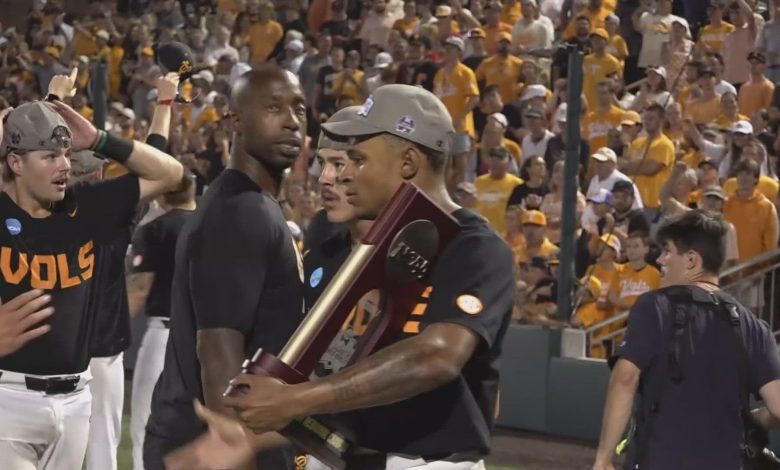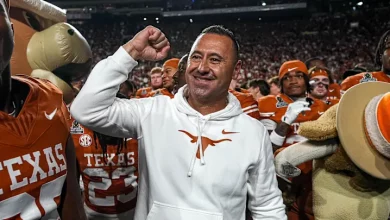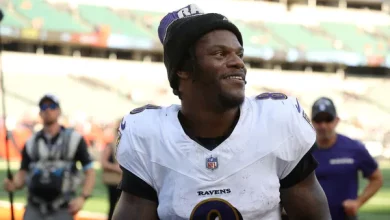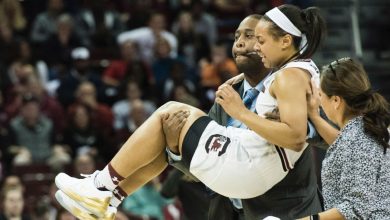Tennessee baseball player Alberto Osuna Sanchez sues NCAA for additional eligibility

Alberto Osuna Sanchez, a standout player on the University of Tennessee baseball team, has found himself at the center of a legal battle that could have significant implications for college athletes across the country. The lawsuit centers around his request for additional eligibility to play baseball for the Volunteers, which was denied by the NCAA. Osuna Sanchez, who has been a key player for the Vols, is seeking legal recourse in hopes of extending his collegiate baseball career.
The heart of the issue lies in the NCAA’s eligibility rules, which have undergone significant changes in recent years. Like many other student-athletes, Osuna Sanchez’s eligibility has been impacted by factors such as the COVID-19 pandemic, which led to disruptions in the college sports calendar. During the pandemic, many players saw their seasons cut short, leading to the NCAA offering additional eligibility to certain student-athletes. However, Osuna Sanchez’s specific case was not granted this exception, which has led him to file the lawsuit.
NCAA’s Eligibility Rules
The NCAA’s eligibility rules are notoriously complex and often lead to confusion and frustration among student-athletes. These rules are designed to ensure a fair competitive balance between teams, but they also have a significant impact on the individual student-athletes’ ability to participate in collegiate sports. In the case of Osuna Sanchez, the NCAA’s rules have led to what he and his legal team argue is an unjust denial of eligibility.
The core issue revolves around the way the NCAA has handled the eligibility of players who were affected by the COVID-19 pandemic. When the pandemic disrupted the 2020 season, the NCAA granted an extra year of eligibility to all spring sport athletes. This decision allowed players who had their seasons cut short to return for an additional year. However, the NCAA’s decision was not universal for all players in every situation. Some players, like Osuna Sanchez, were not granted this extra year, despite being impacted by the same disruptions.
Osuna Sanchez and his legal team argue that the NCAA’s inconsistent application of eligibility rules has harmed athletes in similar situations, creating a sense of inequity in the system. According to his lawsuit, the decision to deny his request for additional eligibility is arbitrary and does not account for the unique circumstances many athletes faced during the pandemic.
The Legal Arguments
Osuna Sanchez’s legal team is making a case for what they describe as an unjust application of the NCAA’s eligibility rules. The lawsuit argues that the NCAA’s handling of eligibility during the pandemic has been inconsistent, with certain players granted additional eligibility while others were denied the same benefit.
In their legal filings, Osuna Sanchez’s team points to a lack of transparency in the NCAA’s decision-making process. They argue that the organization has failed to provide a clear explanation for why some athletes were granted additional eligibility, while others were not. This lack of clarity, according to the lawsuit, has left athletes like Osuna Sanchez at a disadvantage and without recourse for appealing the decision.
Another key argument in the lawsuit is the claim that the NCAA’s actions violate principles of fairness and equal treatment for all student-athletes. Osuna Sanchez’s legal team argues that the denial of his request for additional eligibility is not only unfair but also arbitrary in the way it was applied across the board. They claim that the decision disproportionately affects certain athletes, particularly those who were on the verge of completing their eligibility at the time the pandemic hit.
Additionally, the lawsuit suggests that the NCAA’s failure to provide a clear and equitable framework for extending eligibility during the pandemic has led to confusion and inconsistency across the country. This lack of uniformity, the lawsuit argues, undermines the integrity of college athletics and harms athletes who are simply trying to navigate a challenging situation.
The Impact on Osuna Sanchez
For Osuna Sanchez, the stakes of this lawsuit are personal. A talented player who has contributed significantly to Tennessee’s baseball program, Osuna Sanchez’s collegiate career was disrupted by the COVID-19 pandemic just like many others. The chance to extend his playing career by an additional season could not only benefit him personally but also enhance his professional prospects as he looks toward a potential future in Major League Baseball.
The decision to deny him the opportunity to continue playing for Tennessee has caused significant frustration for Osuna Sanchez, who feels that he has not been treated fairly by the NCAA. His desire to continue playing for the Volunteers and showcase his talents for another season is central to his case, and he is determined to challenge the NCAA’s ruling in the courts.
Beyond the personal implications for Osuna Sanchez, the case is also emblematic of broader concerns within college athletics. Many student-athletes are facing challenges related to eligibility, particularly in the wake of the pandemic. With the increasing complexity of eligibility rules, lawsuits like Osuna Sanchez’s may become more common as athletes seek to assert their rights and challenge the system.
Potential Impact on College Sports
If Osuna Sanchez’s lawsuit is successful, it could have far-reaching implications for college sports, especially regarding eligibility rules and how the NCAA handles exceptions. A ruling in his favor could set a precedent for other athletes who have been affected by the pandemic or other unforeseen circumstances and who are seeking to extend their eligibility.
The case also highlights the ongoing tension between the NCAA and student-athletes, particularly regarding issues of fairness, transparency, and the treatment of athletes as individuals. Many critics of the NCAA argue that the organization’s rules are outdated and often fail to account for the realities faced by student-athletes, who often juggle academics with demanding athletic schedules. Legal challenges like Osuna Sanchez’s could lead to a reevaluation of how the NCAA applies its rules and whether more leniency should be extended to athletes in certain situations.
Furthermore, the case has brought attention to the financial side of college athletics. The NCAA and universities generate significant revenue from college sports, particularly in high-profile sports like football and basketball. However, student-athletes often do not receive a significant portion of that revenue, leading to debates about the fairness of the system. While Osuna Sanchez’s case is focused on eligibility, it is also a reminder of the broader issues surrounding student-athlete compensation and rights.
v









